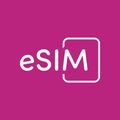L'eSIM Amigo vous permet de rester connecté aux réseaux les plus performants, où que vous alliez. Des paysages pittoresques d'Europe aux villes dynamiques d'Amérique du Nord, notre eSIM offre une activation instantanée, une couverture mondiale étendue et une tarification transparente. Votre connexion au monde est ainsi toujours à portée de main, fiable et sans tracas. Restez connecté en toute simplicité, où que vous soyez.

L'eSIM Amigo vous permet de rester connecté aux réseaux les plus performants, où que vous alliez. Des paysages pittoresques d'Europe aux villes dynamiques d'Amérique du Nord, notre eSIM offre une activation instantanée, une couverture mondiale étendue et une tarification transparente. Votre connexion au monde est ainsi toujours à portée de main, fiable et sans tracas. Restez connecté en toute simplicité, où que vous soyez.
Code Promo
Forfaits de données eSIM Amigo eSIM pour les pays balkaniques
Questions fréquemment posées
Est-ce que Amigo eSIM propose une eSIM à données illimitées pour les Balkans ?
Amigo eSIM ne propose aucun eSIM à données illimitées pour les Balkans. Au lieu de cela, le fournisseur propose des plans à données fixes comprenant des forfaits de 20 GB, 10 GB et 5 GB. Ces plans couvrent l'Albanie, la Bosnie-Herzégovine, la Bulgarie, la Croatie, le Monténégro, la Macédoine du Nord, la Serbie, ainsi que 59 pays supplémentaires. Un plan de 20 GB est proposé à 55, 00 USD pour 30 jours, un plan de 10 GB à 35, 00 USD pour 30 jours, et un plan de 5 GB à 25, 00 USD pour 14 jours.
Si l’usage de données d’un voyageur est modéré, un plan à données fixes peut souvent être plus économique qu’une alternative illimitée. Ceux qui prévoient un très fort usage des données peuvent devoir envisager d’autres fournisseurs qui proposent des options illimitées.
Est‑ce qu’Amigo eSIM propose une eSIM des Balkans avec numéro de téléphone et SMS ?
Amigo eSIM ne propose pas de numéro de téléphone ni de possibilité d’envoyer des SMS pour ses plans eSIM des Balkans. Les forfaits balkaniques sont uniquement de données, ce qui signifie que vous pouvez naviguer sur le web, utiliser des applications VoIP telles que WhatsApp, Telegram et iMessage pour la voix et les messages texte, mais il n’existe pas de service téléphonique natif ni de support SMS dans cette région.
Quels pays sont couverts par les forfaits eSIM d’Amigo eSIM dans les Balkans ?
Le plan Amigo eSIM World inclut une couverture dans les pays balkaniques suivants : Albanie, Bosnie-Herzégovine, Bulgarie, Croatie, Monténégro, Macédoine du Nord et Serbie.
Résumé avec Gen AI. Dernière mise à jour:




